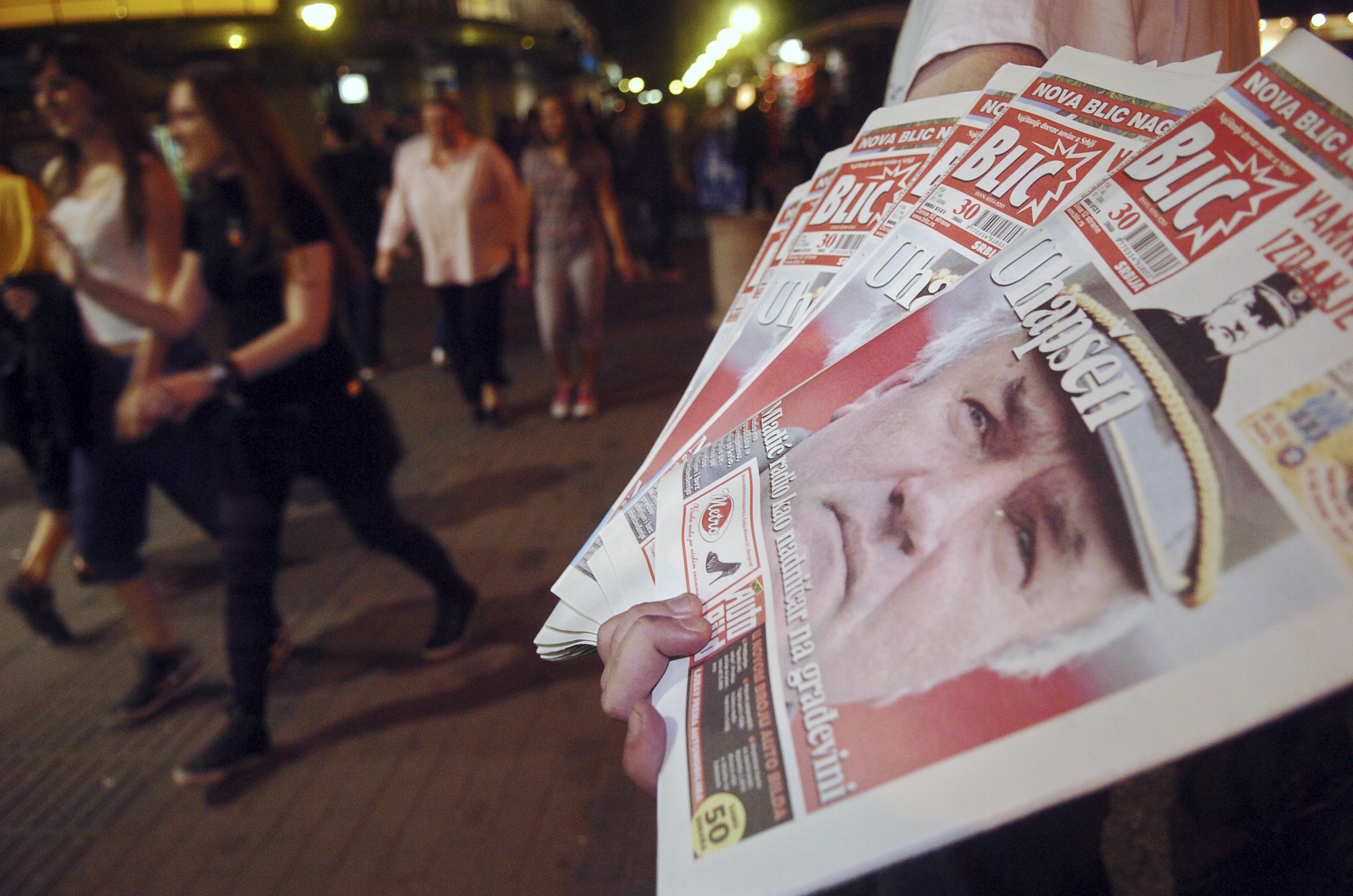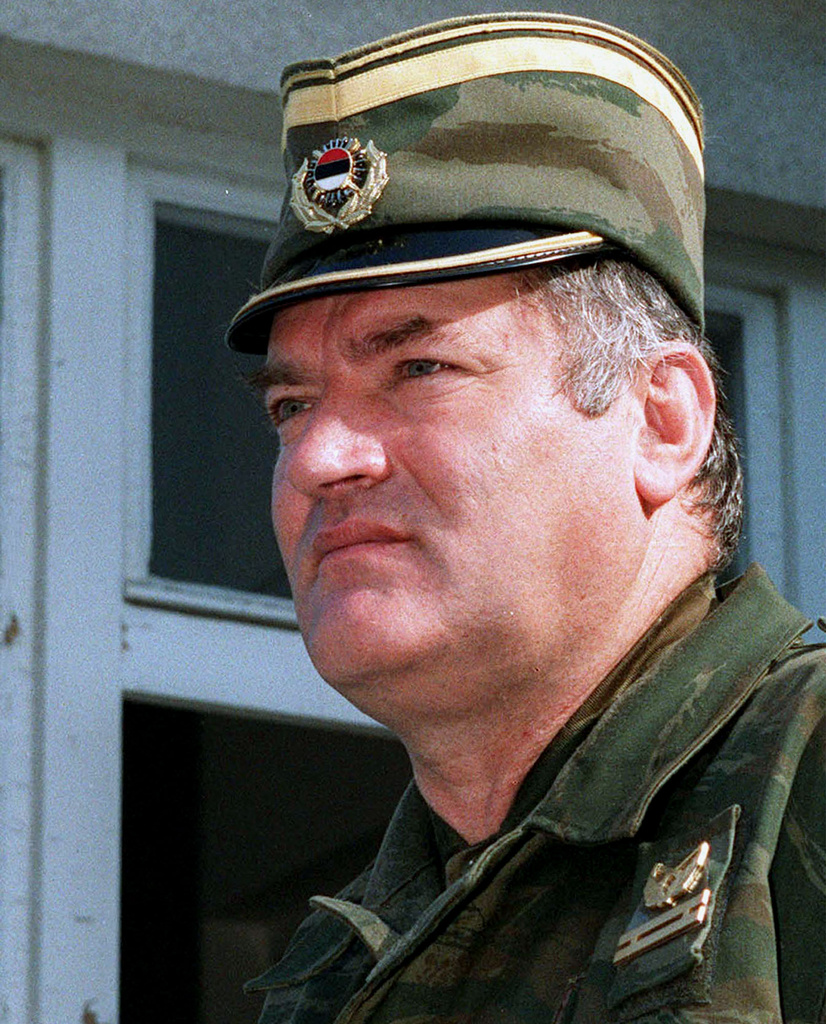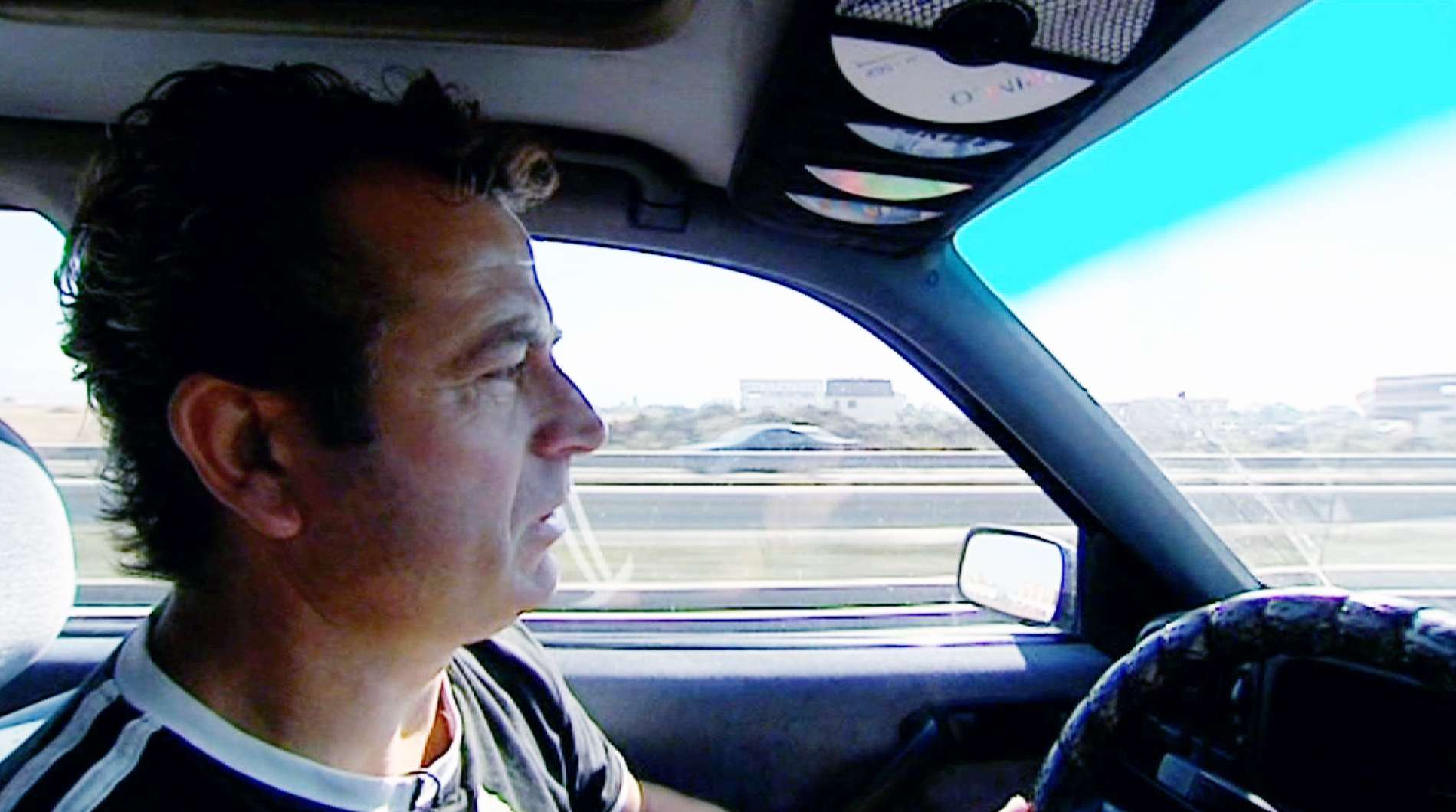Swiss press cynical about Mladic arrest

Swiss newspaper editorials have viewed Ratko Mladic’s capture as historic but question Serbia’s motives in finally arresting him.
Serbian President Boris Tadic announced that Europe’s most wanted war crimes fugitive had been arrested on Thursday and was headed to the International Criminal Tribunal at The Hague. Several newspapers said Serbia and Tadic himself had much to gain by the move.
Former Bosnian Serbian army commander Mladic had been on the run since 1995 when he was indicted for genocide by the United Nations war crimes tribunal in The Hague for the slaughter of some 8,000 Bosnian Muslims in Srebrenica during the 1992-95 Bosnian war.
His long evasion of arrest has blocked Serbia’s progress towards joining the European Union.
The arrest was “a very important victory for international justice”, wrote Le Temps in its editorial.
“His capture changes many things” for the International Criminal Tribunal for the former Yugoslavia, as Mladic was the mastermind behind most of the crimes to have gone before the tribunal since its creation in 1993: the siege of Sarajevo, the Srebrenica massacre, the policies for ethnic cleansing.
“His endless evasion of capture only deprived countless victims of retribution. It cast a shadow over the work of judges at The Hague.” But the tribunal can now “enter into the history books honourably: within the limits of its mandate, it has more or less done its job,” said Le Temps.
Well timed
“The timing was perfect,” observed La Tribune de Genève.
“What a coincidence.” The arrest came on the day the EU’s top diplomat Catherine Ashton was in Belgrade. And at the same time, the prosecutor for the International Criminal Tribunal for the former Yugoslavia was preparing to go before the UN to lambast Serbia for its insufficient efforts, the paper noted.
One year away from elections, pro-European Tadic also “needed to offer hope to a population shaken by the economic crisis. A candidature for the EU, that will improve prospects!”
While the arrest has been celebrated as historic in Europe, it won’t be making everyone happy in Serbia, the paper added. With Mladic regarded by some as a national hero, “these proud people hate to deliver their citizens to an international tribunal that is accused of dispensing the ‘justice of superiors’”.
“With the arrest of Mladic, Serbia has closed a dark chapter of its history,” wrote the Tages-Anzeiger’s correspondent in the Balkans.
Over the past 16 years, the Belgrade authorities have often led the West on about arresting Mladic, who has benefited from the protection of the army and the secret services in the meantime. These units have blood on their hands over the Bosnian war and still have no interest in ensuring all the truth is revealed. But this clique has now lost its influence, the paper said.
Moreover, Tadic has understood that anti-western politicians, ultra-nationalist parties and reform opponents no longer go down well with the Serbian people.
Under pressure
The arrest has been the best news from the Balkans in a long time, according to the Basler Zeitung. It’s especially significant for relatives of the victims of Mladic’s crimes.
It is also important for reconciliation in the Balkans, where countries still have difficulties coming to terms with the past but where this issue is no longer taboo.
But it wouldn’t have happened without outside pressure or Belgrade’s wish to join the EU, the paper added.
“Sometimes it just takes a little pressure,” agreed the tabloid Blick, noting that in July 2008 Bosnian Serb leader Radovan Karadzic was arrested and a year later Serbs were given visa-free travel in the Schengen zone.
On Tuesday, EU Commissioner for Home Affairs Cecilia Malmström recommended removing that visa freedom as too many asylum applications were being made by Serbians. Two days later Mladic was arrested. “Any questions?” wondered Blick.
European dreams
La Liberté said that in one move Serbia had reconciled somewhat with its history while at the same time preparing for its future. Now, Serbia could “dream of Europe”.
“No arrest, no integration,” said the paper’s editorial. “The capture of Ratko Mladic was a key condition for Serbia to enter the European house. Yesterday, with one hand the government delivered the fugitive, with the other it was knocking harder than ever at the EU’s door.”
But it warned that while it had made an important step towards its candidature for the EU, “the road to Brussels is still long and there are many obstacles still to overcome”.
The country needs to fight against corruption and the influence of criminal networks and deal with its refusal to recognise Kosovo’s independence. After that, it still needs the backing of the EU’s 27 members.
But the EU has been exhausted by the latest entries of its poorest nations Bulgaria and Romania and with its less than reassuring economic indicators, Serbia doesn’t have the best profile for seducing the union, said La Liberté. “Just one rejection by a country would pour cold water on Serbia’s aspirations”, it noted.
The Neue Zürcher Zeitung saw the arrest as the result of both pragmatism by the Serbian authorities and pressure being exerted from outside.
According to the paper, Serbia now regards EU membership as more important than Mladic, a figure who represents a dark period that Belgrade would prefer to have nothing more to do with.
Its major obstacle towards EU membership is now out of the way, especially if Belgrade is cooperative over Kosovo, the paper noted.
Ratko Mladic is accused of orchestrating the methodical slaughter of up to 8,000 Muslims from the Bosnian “safe area” of Srebrenica, in the worst massacre in Europe since the Second World War. The dead were bulldozed into mass graves over four days.
It was the culmination of a three-and-a-half-year conflict in which Mladic pounded the besieged city of Sarajevo daily with the artillery, tanks, mortars and heavy machineguns of his Bosnian Serb army, killing 10,000.
The alleged goal of the Bosnian conflict was “ethnic cleansing” – the forcible expulsion of Bosnian Muslims, Croats and other non-Serbs to clear Bosnian lands for a Greater Serbia.
It was a conspiracy, according to the United Nations War Crimes Tribunal for former Yugoslavia, in which Mladic was aided, armed and abetted by former Serbian leader Slobodan Milosevic, together with Bosnian Serb leader Radovan Karadzic.
Both Mladic and Karadzic, his political master, were indicted for war crimes in 1995. Karadzic, who was captured in 2008 in Belgrade living under a new identity, and Mladic topped the tribunal’s wanted list for years after Western powers ended the war. But until Milosevic was toppled in October 2000, the general lived securely, if discreetly, in Belgrade.
Milosevic died in detention on March 11, 2006, a few months before a verdict in his four-year trial for genocide and other war crimes in Croatia, Bosnia and Kosovo.
Karadzic is now in prison in The Hague and on trial on war crimes charges.
(With input from Federico Bragagnini)

In compliance with the JTI standards
More: SWI swissinfo.ch certified by the Journalism Trust Initiative





You can find an overview of ongoing debates with our journalists here. Please join us!
If you want to start a conversation about a topic raised in this article or want to report factual errors, email us at english@swissinfo.ch.